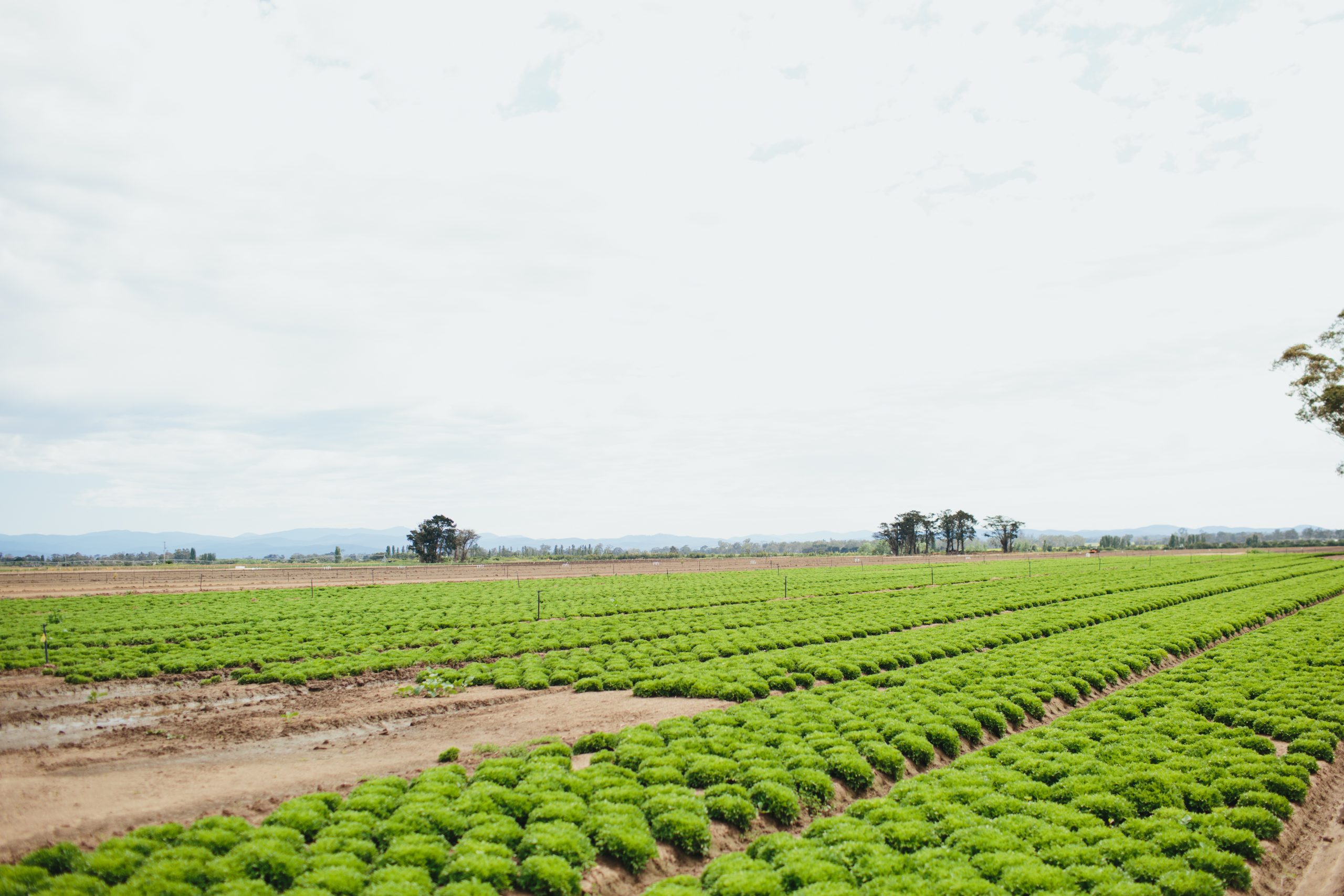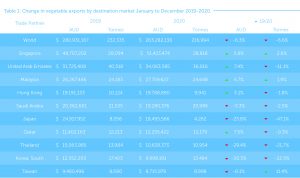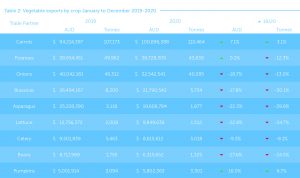Looking back over four years of vegetable export development
The Vegetable Export Development Program is due for completion in June 2021 and has delivered significant benefits to Australian vegetable growers, with the latest independent reviews calculating the return on investment to be around $12 for every dollar. AUSVEG National Manager – Export Development Michael Coote provides an overview of the project activities and outlines the benefits the program has delivered to growers.
Export strategy
The Vegetable Industry Export Strategy 2020 was developed by agribusiness experts McKINNA et al. and encompasses seven target areas for investment to assist the industry in developing fresh vegetable exports.
The AUSVEG export program incorporates a number of these target areas for development and is tasked with the role of managing the implementation of the strategy.
The vegetable industry’s export growth target is a 40 per cent increase in value to AUD$315 million by 2020 – the industry was well on track to exceed this target until the COVID-19 pandemic in 2020 reduced the industry’s capacity to export produce.
A big part of this success can be linked to the program delivered by AUSVEG, with its most recent independent review attributing $29.8 million in revenue benefits to growers as a direct result of the program in 2019, resulting in a net benefit of $27.5 million and a return on investment of 1,196 per cent.
About the project
The Vegetable Export Development Program is a four-year strategic levy investment under the Hort Innovation Vegetable Fund, and is due to end in June 2021. Delivered by AUSVEG under the guidance of a project steering committee, the program aims to improve the capabilities and capacity of the Australian vegetable industry so that it can increase vegetable exports.
The program is delivered by AUSVEG and involves a range of activities, including:
- Export readiness training for growers looking to commence exporting and those looking to improve exporting performance.
- Market development activities including a combination of inbound and outbound trade missions to build growers’ understanding of export market supply chains and facilitate connections with international fresh produce buyers.
- Working with industry, Hort Innovation and government to prioritise market access for vegetable products.
The program is targeted at growers from across the export spectrum – from those who are taking their first steps into the export market to well-established exporters looking for more technical and targeted information and support.
Over the course of the project, AUSVEG has delivered the following:
- 11 Export training workshops and two new online e-training programs.
- Five Reverse Trade Missions that bring international buyers to connect directly with growers and showcase local production capabilities. Buyers have visited Australia from 10 countries: Malaysia, Japan, The United Arab Emirates (UAE), Singapore, Indonesia, South Korea, Hong Kong, Thailand, Taiwan, and The Philippines.
- Participation in 15 international trade exhibitions showcasing Australian produce to the world, with more than 154 growers involved.
- Developed 10 market access applications to increase the number of available markets for Australian vegetables exports.
Moving export training online
In addition to the project requirements, AUSVEG has worked with the broader industry to provide more resources and training opportunities for vegetable exporting growers to lift the export capabilities and improve understanding of the export landscape.
AUSVEG, in partnership with the Export Council of Australia (ECA), launched Export Fundamentals for Australian Fruit & Vegetable Growers: From Farmgate to International Markets in September 2020. This course is customised to the Australian vegetable industry to provide foundational training for growers to understand a broad range of topics relating to international trade for fresh produce.
Building on the successes, learnings and findings from previous Export Readiness Training Workshops, AUSVEG identified the need to transition the workshop program to an online format, which ensures growers from around the country can access this export development content without having to attend a scheduled workshop.
There is a total of 11 modules in the training course covering topics such as Export Readiness; Market Access and Market Research; International Market Entry; Export Documentation; and Freight and Logistics. For more information on how to access this new online course, please visit the AUSVEG’s website at ausveg.com.au/export.
Cultural Business Etiquette Program
Funded by Package Assisting Small Exporters – an Australian Government initiative through the Department of Agriculture, Water and the Environment – AUSVEG has partnered with Bisnis Asia to create the Build Your Business Overseas – Like A Local cultural business etiquette online training course, which launched in November 2020.
This course aims to improve vegetable grower-exporters export capability by developing engagement skills that will make a difference with existing and potential customers in Asia and the Middle East. The course is suitable for existing vegetable grower-exporters who already have experience in international markets and want to optimise growth opportunities through stronger engagement with customers.
For national vegetable levy paying grower-exporters with an interest in building cultural awareness in Japan, South Korea, Indonesia and the Middle East, please register via the export page of the AUSVEG website.
Impact of COVID – Air Freight Disruptions
The forced grounding of most domestic and international air travel early in COVID-19 resulted in an immediate challenge to exporters, particularly vegetable exporters who ship high-value, highly perishable product as belly cargo in aeroplanes.
To address this, the Federal Government announced the International Freight Assistance Mechanism (IFAM), which commenced on 1 April 2020 and is scheduled to run until the middle of 2021. The $669 million support package was an emergency measure to assist Australia’s exporters of agricultural and aquaculture products to continue to service export markets.
Since IFAM commenced, it has moved over 330,000 tonnes of agricultural and aquaculture produce valued at AUD$4.5 billion on over 10,000 flights to 68 international destinations.
Horticulture has been the largest user of the IFAM program, with over 135,000 tonnes valued at AUD$1.2 billion of fresh fruit and vegetables sent to international markets. Hong Kong, Singapore, Kuala Lumpur, Auckland and Dubai have been the main destinations for IFAM flights carrying fresh produce. As most of these markets are key destinations for Australian vegetable exports, IFAM has been beneficial for vegetable grower exporters to continue to meet the demand from key international customers for high-quality fresh vegetables.
AUSVEG provided detailed data to the IFAM coordination team on the footprint of fresh vegetable airfreight exports – by city of origin, export market destination, crop/product and volume by month – to ensure vegetable exporters can use the mechanism to continuing exporting their products.
AUSVEG regularly engaged with federal department and government advisors to ensure that the interests of vegetable growers were considered by the IFAM team.
What’s next?
The next iteration of the Vegetable Industry Export Strategy, covering the period from 2021-2025, is set to be released in March 2021 with refreshed export target growth objectives and strategic directions to guide investment and activities to support sustainable growth in the export of fresh Australian vegetables to international markets.
Export overview – 2020
Total vegetable exports have seen a moderate decline compared to the same period in 2019. Based on data from the Global Trade Atlas, there was a 6.3 per cent decrease in vegetable export value, from $280.9 million to $263.3 million. Total vegetable export volumes also declined by 6.6 per cent, from 232,335 tonnes to 216,994 tonnes over the same period.
The top four markets for fresh vegetable exports – Singapore, The UAE, Malaysia and Hong Kong – have all seen an increase in trade value during 2020. Fresh vegetable exports into ASEAN markets have stayed relatively consistent.
Singapore continued to be the top Australian fresh vegetable export destination and has recorded a positive increase in both export value and volume in 2020. The export value rose by 5.6 per cent from January to December 2020, from $48.7 million to $51.4 million; export volume improved by 2.6 per cent from 28,094 tonnes to 28,818 tonnes. The UAE fresh vegetable export market grew by 7.4 per cent in value but declined in volume by 11.1 per cent. Malaysia recorded a 5.7 per cent rise in export value and 1.9 per cent increase in tonnage.
Exports by crop
In 2020, sea freighted root vegetable exports have been relatively stable in comparison with exports of more perishable vegetable crops. The trade of carrots remained strong and consistent, with export value increasing by 7.1 per cent from $94.2 million to $100.9 million; export volume has increased by 3.1 per cent from 107,173 tonnes to 110,464 tonnes. Potato export value increased slightly by 0.2 per cent and export volume decreased by 12.3 per cent, from 49,962 tonnes to 43,838 tonnes.
Despite a strong start of the 2020 export season, asparagus recorded a drop of 22.3 per cent in export value from $25.2 million to $19.6 million and a significant reduction in volume by 40 per cent (refer to Table 2). Fresh vegetable export trade to Japan declined by 25.8 per cent in value from $24.9 million to $18.5 million and export volume reduced by 47.1 per cent, from 8,056 tonnes to 4,262 tonnes. Increased trading challenges relating to COVID-19 disruptions and a drop in asparagus exports are the main contributors to the significant decline in fresh vegetables exports to Japan (refer to Table 1).
Find out more
Any growers interested in any export events or discussing export opportunities can contact the AUSVEG Export Development team on 03 9882 0277 or export@ausveg.com.au.
This project has been funded by Hort Innovation using the vegetable research and development levy and contributions from the Australian Government.
Project Number: VG16061
Grower testimonials – The Vegetable Export Development Program
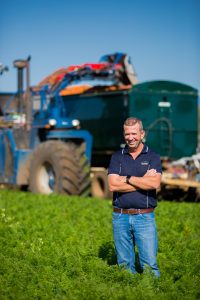
Moffatt Fresh Produce
“I have been involved in the AUSVEG Export Development Program since 2014. We would not have been exporting to the level we are today if we did not get involved with the AUSVEG Export Development team. The program has helped us in a lot of ways, from introducing us the right international customers utilising AUSVEG’s existing networks, hosting international buyers as part of the Reverse Trade Mission farm visits, assistance with resolving an urgent market access issue, expanding our international trade operations, and assisting us to complete an annual protocol audit for Taiwan. Having a knowledgeable and trusted industry resource just a phone call away has been a real bonus for our business as we increased our focus on developing our export business in recent years.”
Steve Moffatt – Managing Director, Moffatt Fresh Produce
Zerella Fresh
“I came across AUSVEG’s export program in 2018 and have been involved with the AUSVEG export team in a number of ways. The types of assistance we have utilised includes providing advice on specific export issues we have encountered, participating in the industry trade mission to the Asia Fruit Logistica trade exhibition in 2019, and being involved in the annual Reverse Trade Mission to meet new international customers. As a business that is relatively new to exporting directly, I have found that being able to contact a resource at AUSVEG that is dedicated to assisting vegetable exporters is really useful – especially for new exporters.”
Renee Pye – Marketing Manager, Zerella Fresh

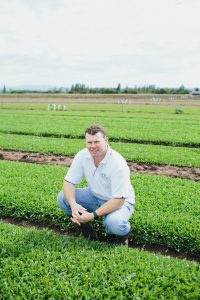
Dicky Bill
“Our business has been heavily engaged with the industry export program and team at AUSVEG since 2016. From answering queries about different export markets through to hosting international buyers on our farms and exhibiting at international tradeshows with a variety of other exporting growers, Dicky Bill has seen the value that an industry-led export development program can deliver for growers. We have found that the learnings shared, and connections created, between growers that participate in the international trade missions has been invaluable. As a result of our business’s increased focus on exporting, the program has contributed to us expanding the number of markets and export customers we supply.”
Ryan McLeod – Director, Dicky Bill

